In times of war, the family transforms into a fortress – the last sanctuary where we seek peace, support, and faith. But at the same time, it becomes an internal front where a daily struggle for the preservation of closeness, understanding, and humanity takes place. How can we avoid losing each other in the vortex of anxieties, losses, and changes? How to maintain a connection when it seems that all familiar reference points are lost? The art therapy session “The Family Compass: How Not to Lose Each Other” was dedicated to this deep and vitally necessary issue. It united internally displaced persons and the families of military personnel in a common aspiration to find the path to the heart of their family.
On August 26, 2025, within the walls of Poltava Polytechnic (room 302-C), the participants of this art therapy session did not just talk about family relationships; they learned to feel, explore, and heal them through the language of art. Talking about family can often be painful, as it touches the deepest strings of the soul. But when this dialogue happens through creativity, there is gentleness, safety, and an opportunity to see familiar things from a new angle.
Under the careful and empathetic guidance of the team of psychologists from Poltava Polytechnic, the participants immersed themselves in a deep process of self-reflection. The journey to understanding family ties began with exploring the circles of closeness, responsibility, and influence according to Marilyn Murray's model. In the conditions of war, when people often fall into the trap of hyper-responsibility, taking on the burden of the emotional state, safety, and future of the entire family, this exercise had a powerful therapeutic effect. By visualising these concentric circles on paper, each participant was able to see the limits of their influence clearly. It was an act of psychological separation: realising where one's own responsibility ends and the personal space, freedom, and choice of another person begins. “For the first time, I saw how much I take on that doesn't belong to me”, – shared one of the participants. This insight became the first step toward emotional relief, burnout prevention, and reclaiming the right to one's own feelings.
The central part of the meeting was working with the “Family Compass” – a unique art therapy tool that allows for the exploration of the family system not through painful words, but through safe images and symbols. Participants created their own family map, where each cardinal direction corresponded to a particular sphere: north – for shared values, south – for emotional needs, east – for dreams and hopes, and west – for ways of support. In art therapy, such a process of symbolization allows for the externalisation of complex internal processes. This provided an opportunity not just to analyse relationships rationally, but to feel them on a deep, emotional level. Each map became a unique reflection of the family system with its resources, points of tension, and areas for growth. “The family compass is like a map I've been looking for a long time. Now I know how to talk to my loved ones about what's important”, – noted one of the event participants, emphasising how visualisation helps find the right words for difficult conversations.
The culmination of the meeting was the creation of a one-day family advent calendar. The war sharpens the sense of the value of the present moment. That is why the idea of small but meaningful rituals that can be implemented today found such a deep resonance. From a psychological point of view, rituals are a powerful tool for restoring a sense of stability and predictability in a chaotic world. Participants created small “windows” with resourceful but straightforward actions: a shared coffee, a short message of gratitude, a hug without words, a delicious dinner. These are not just pleasant trifles, but acts of creating closeness. They became a reminder that warmth and connection are made not from incredible feats, but from daily attention and care. “The one-day advent calendar is brilliant. We've already done one ritual, and it was hot”, – shared a participant.
The atmosphere of the session was filled with sincerity and trust. It was a safe space where one could discuss difficult things without fear of judgment and feel the support of others.
This session once again proved that art therapy is a gentle yet powerful language that heals relationships, and the joint creative process unites and gives strength. After all, even in the darkest times, the compass that points the way to the hearts of loved ones is within us, and sometimes, to adjust it, all you need is a map, paints, and a circle of people who understand you.
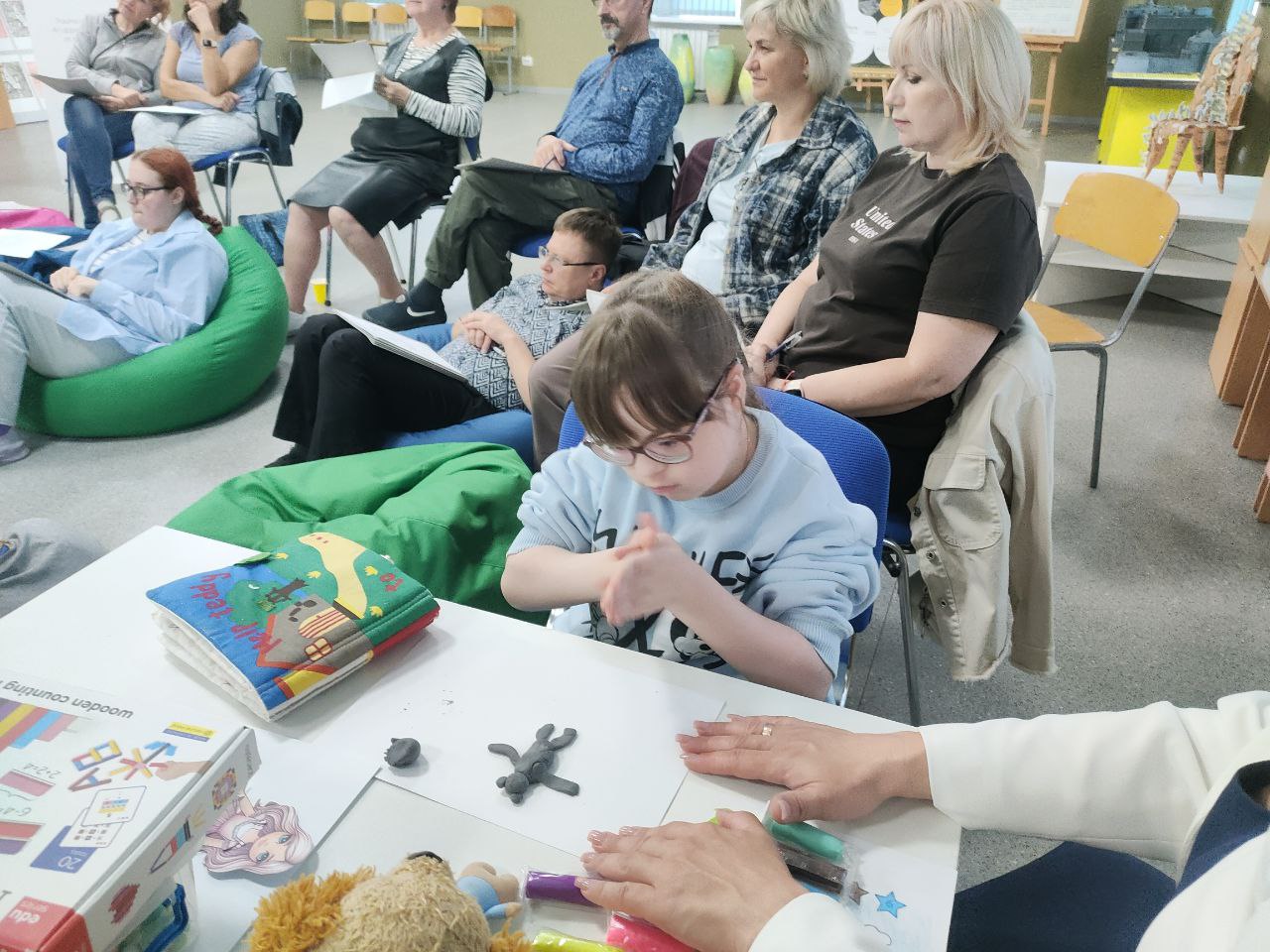
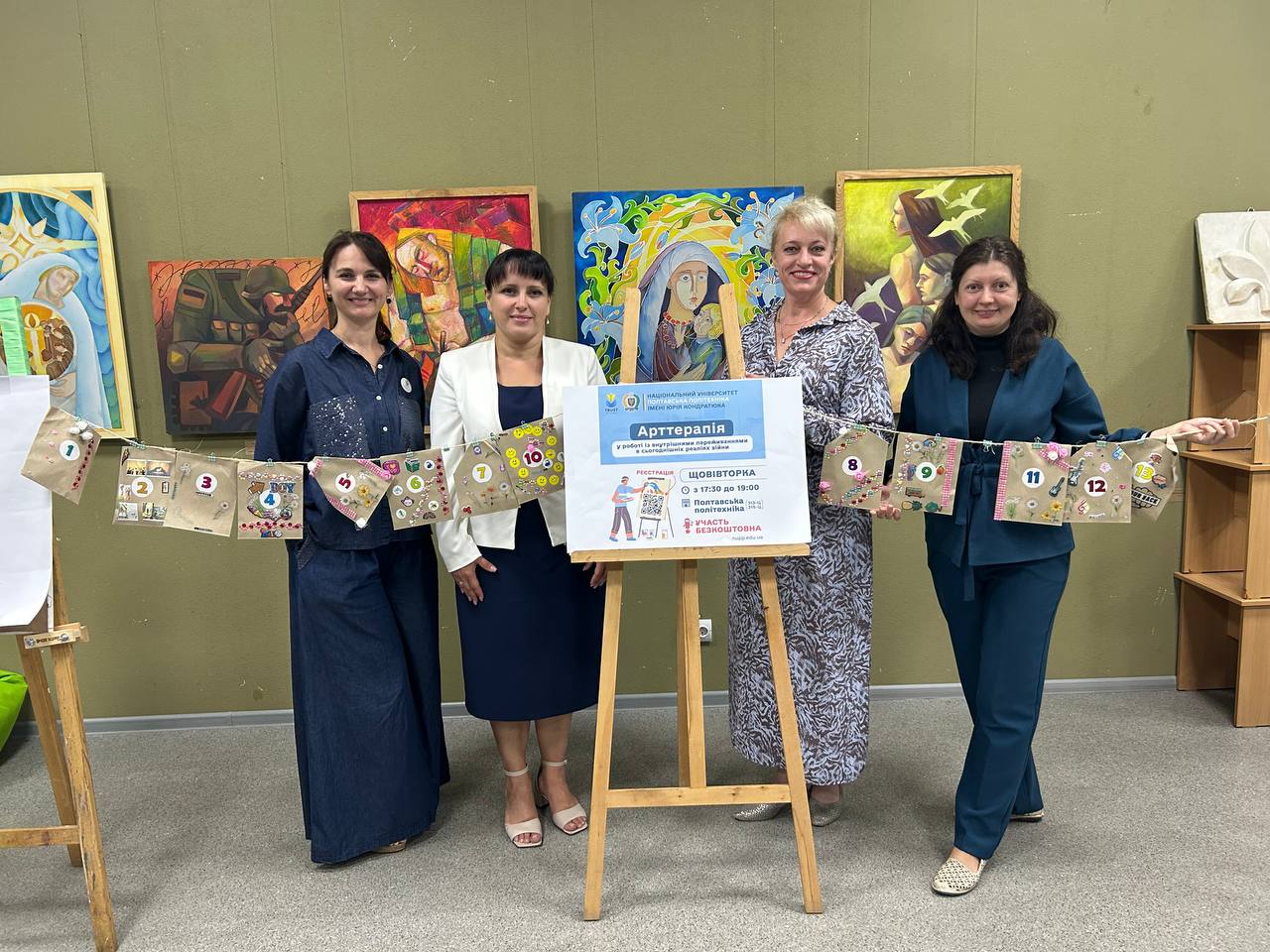
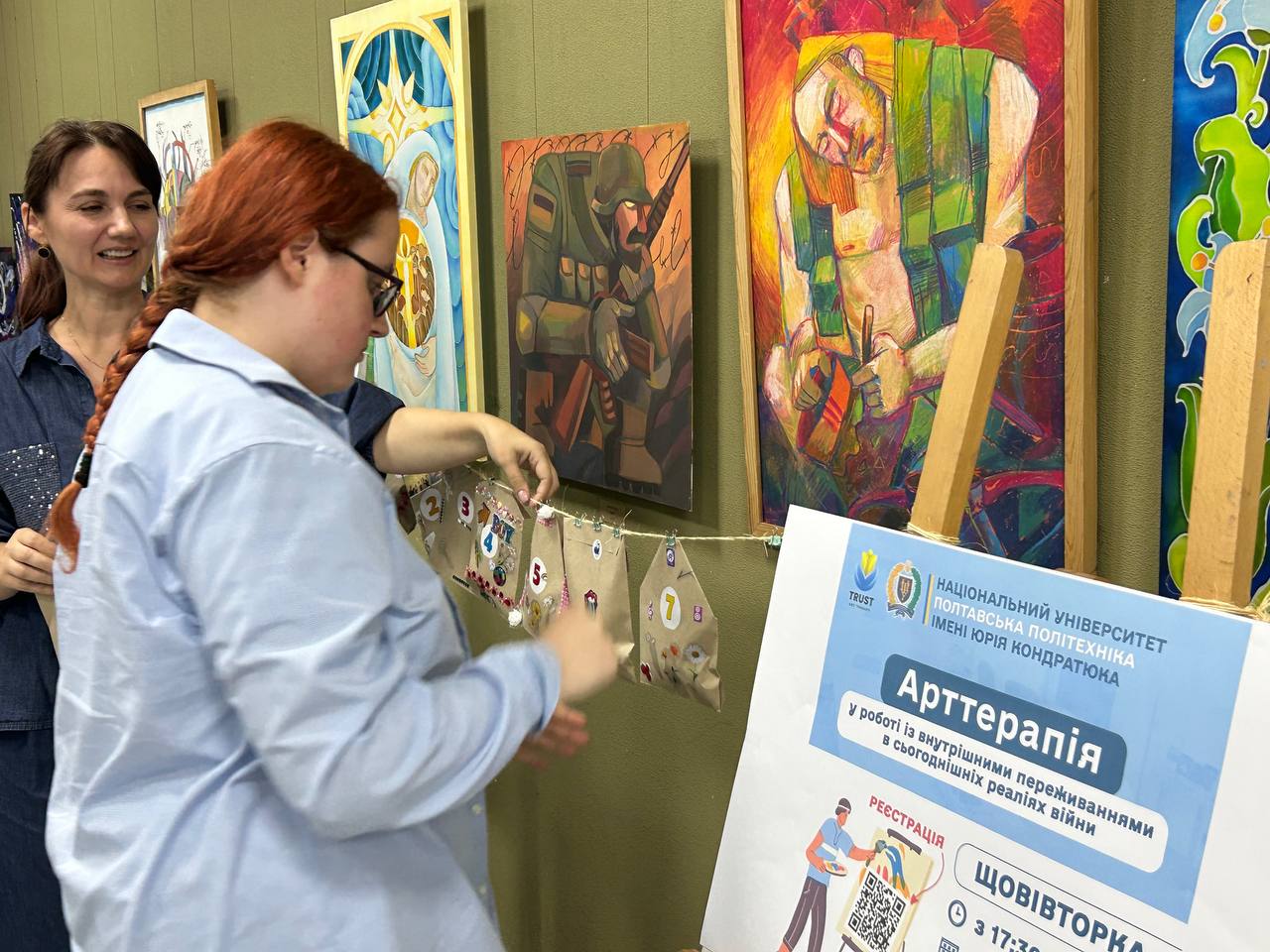
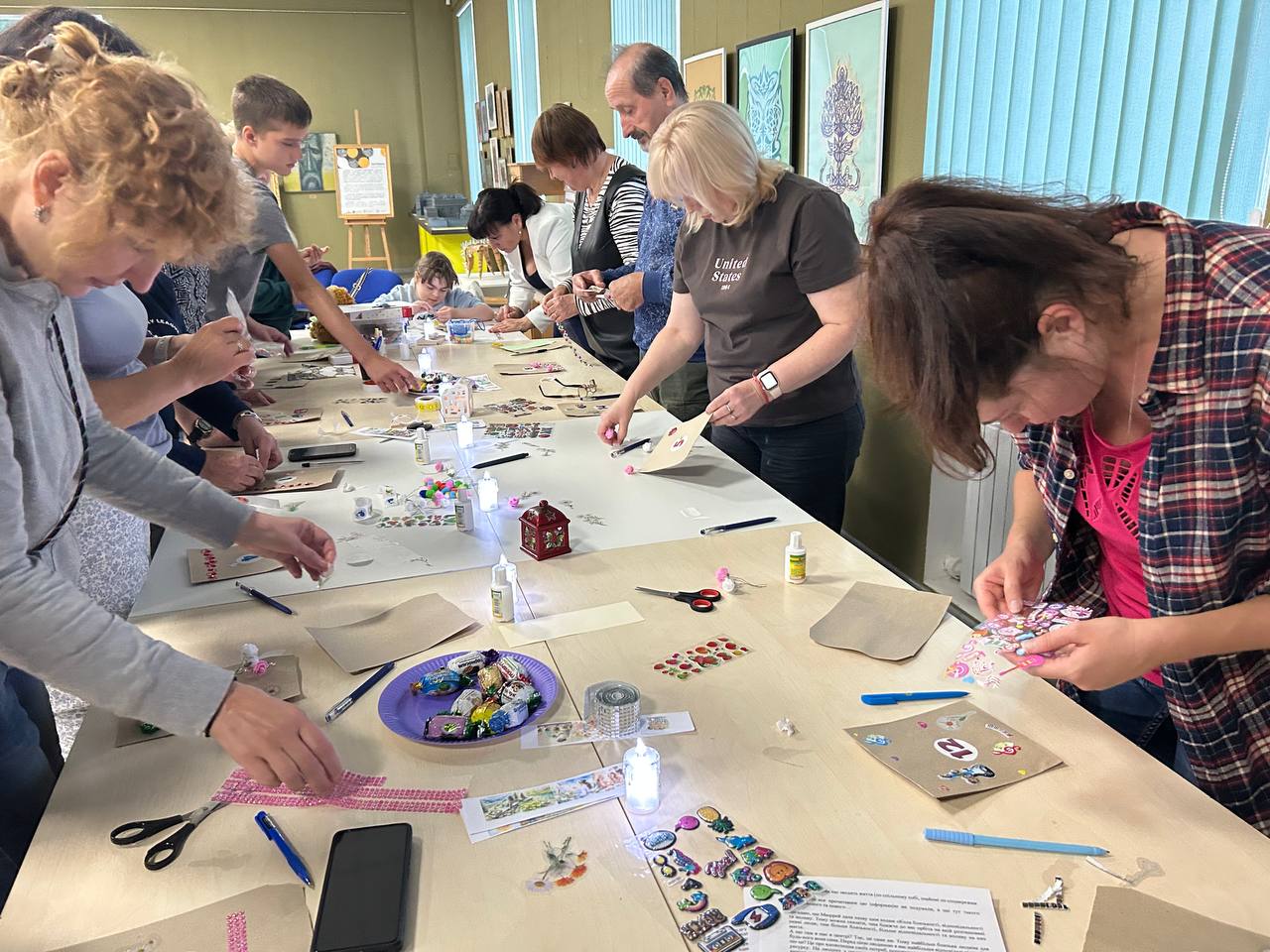
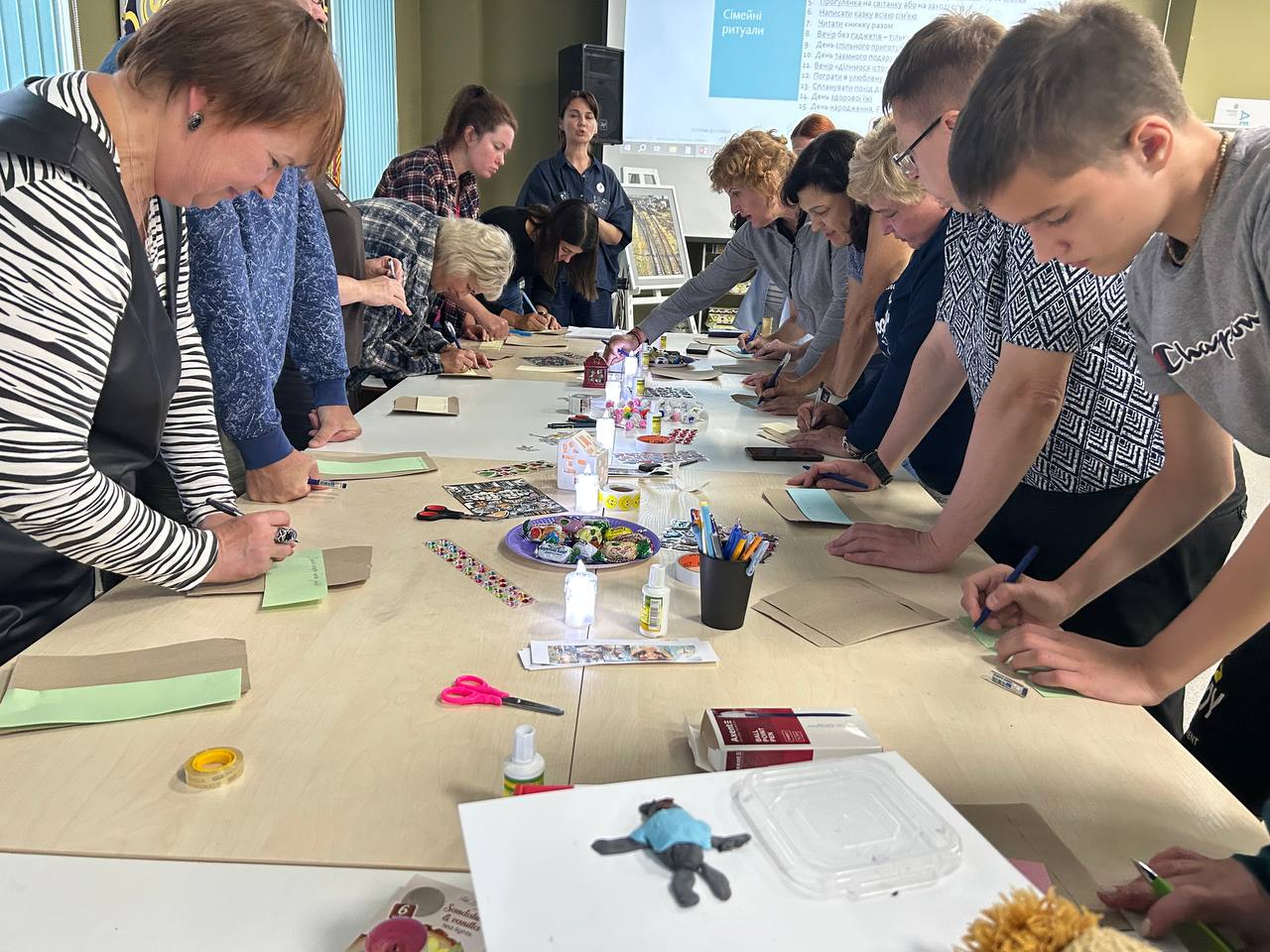
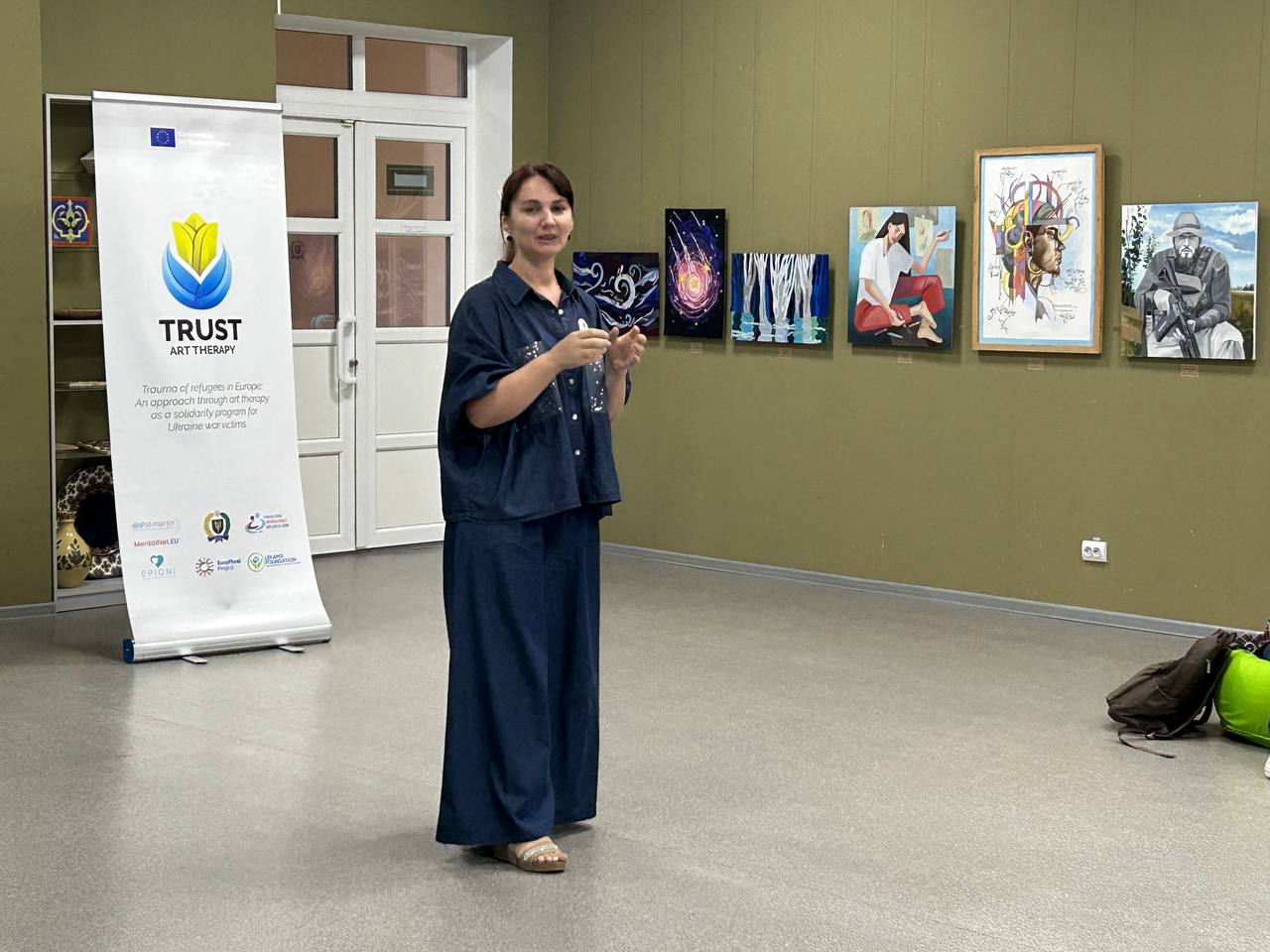
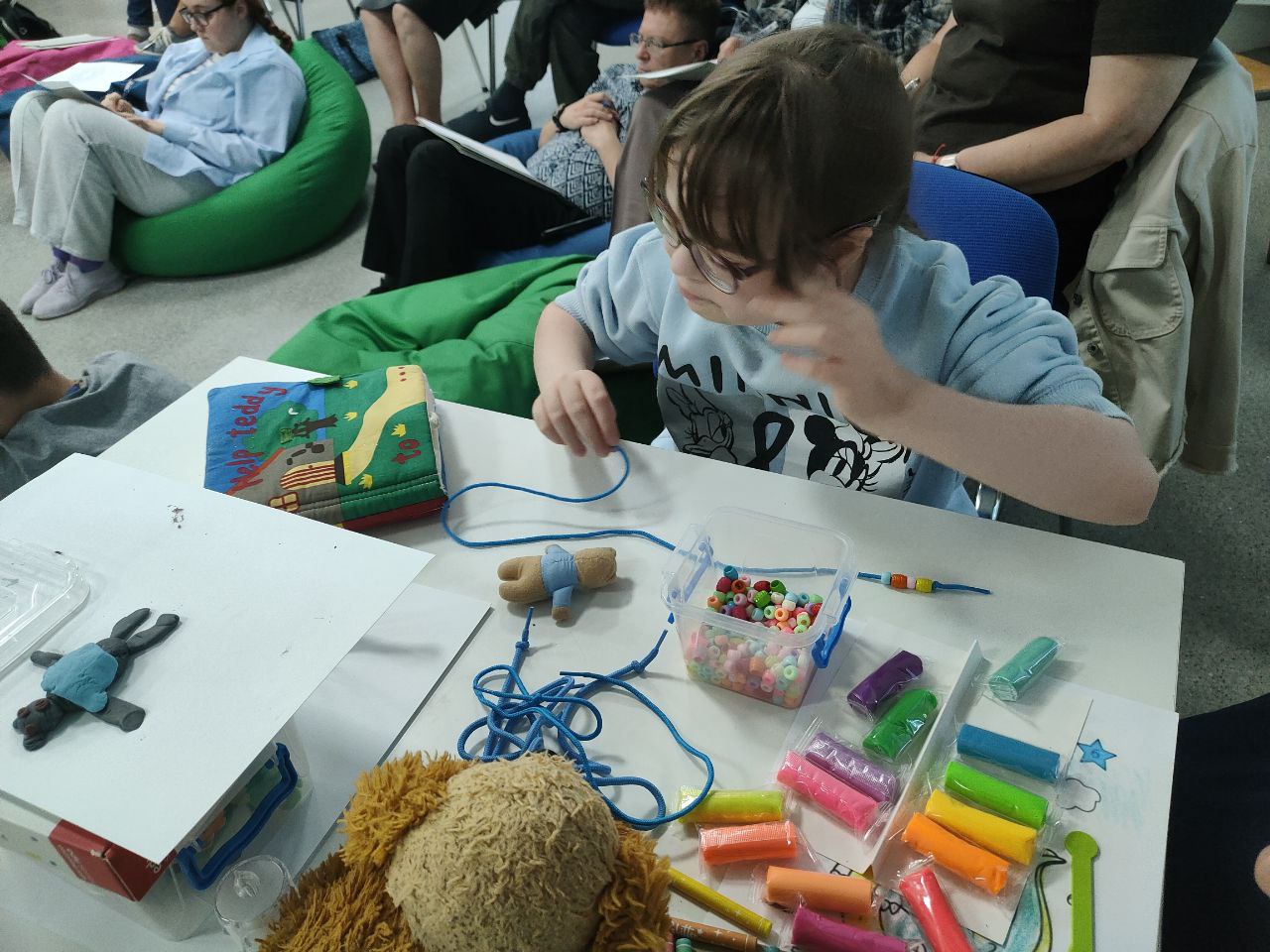
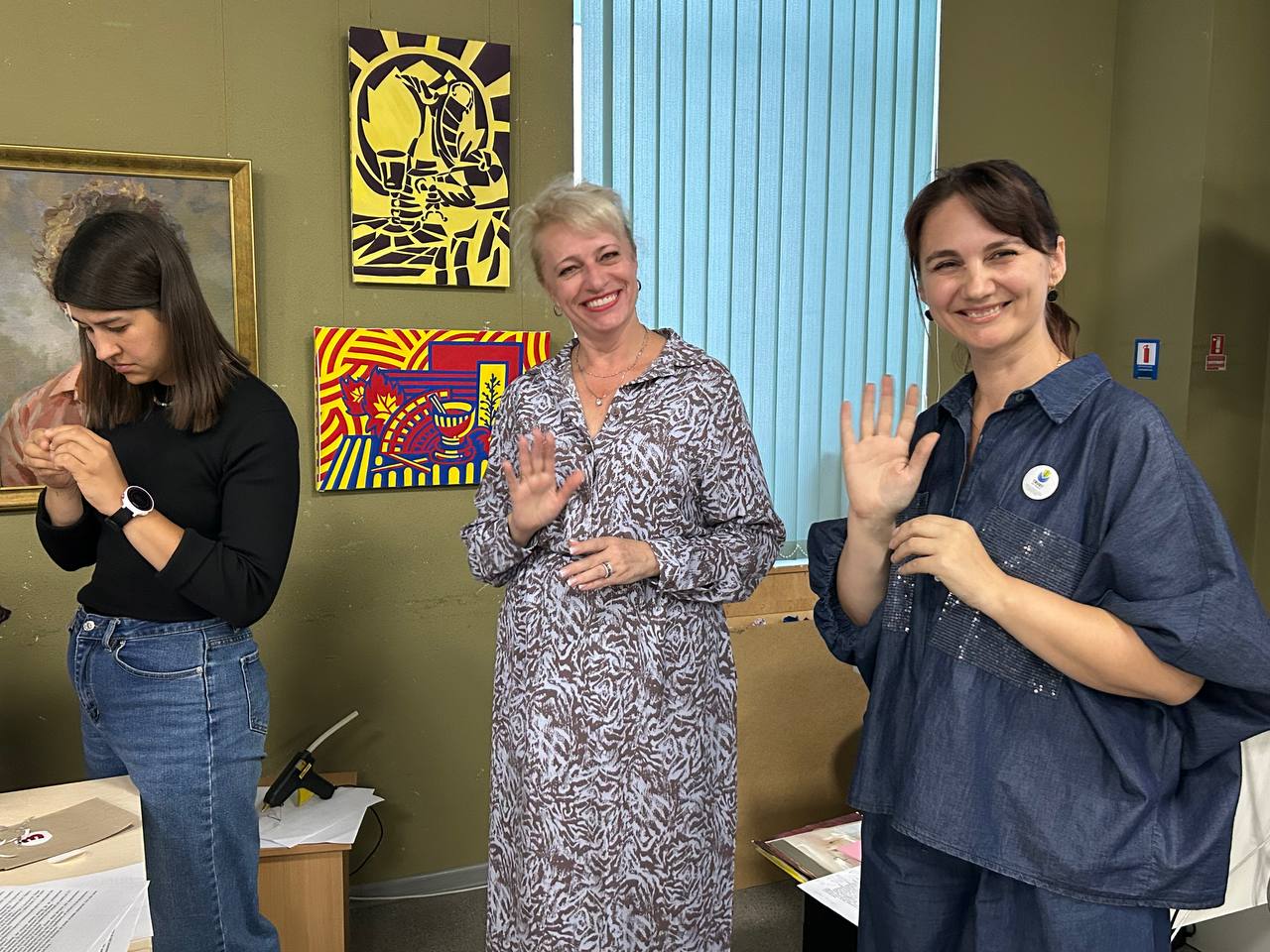
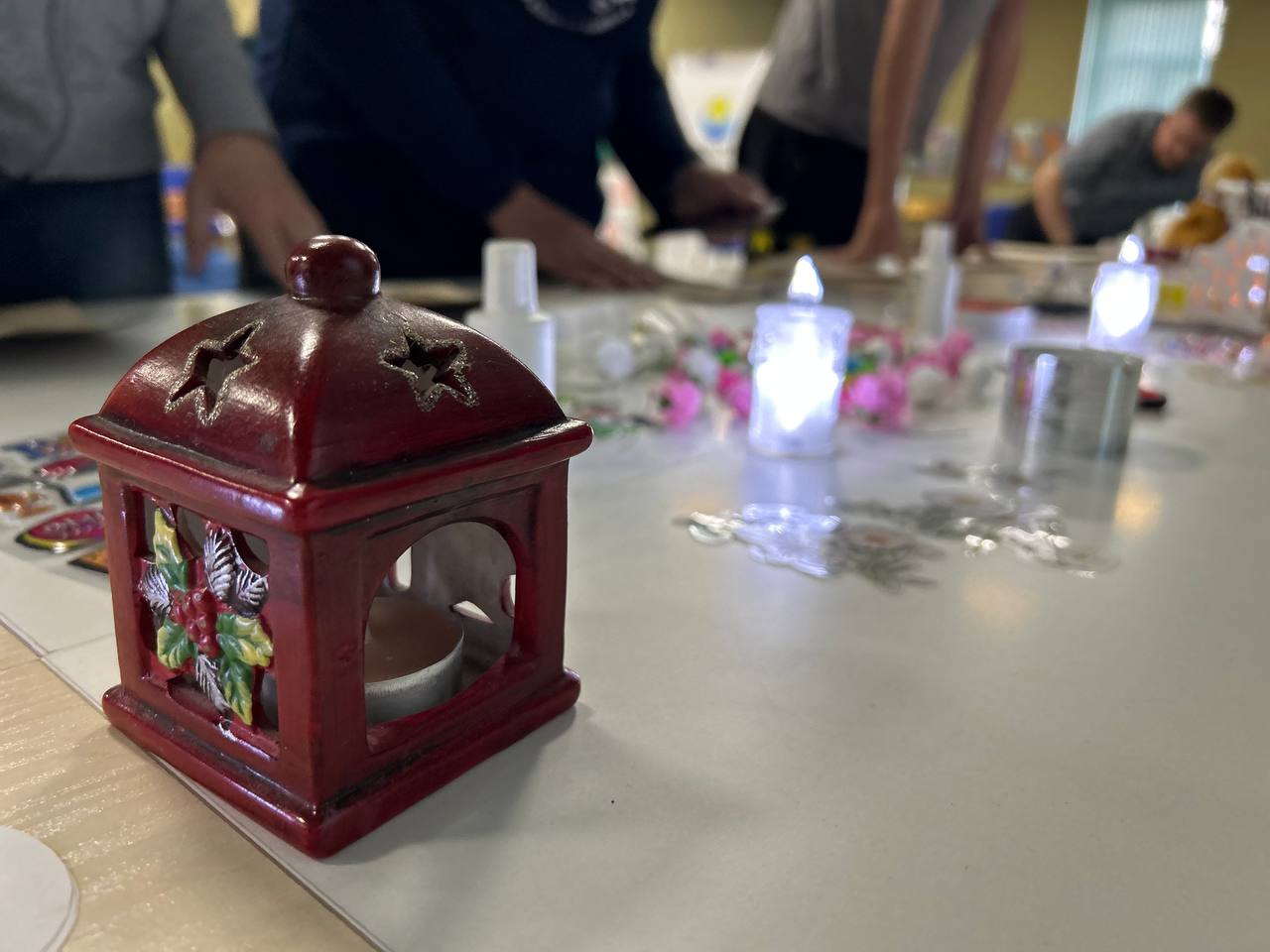
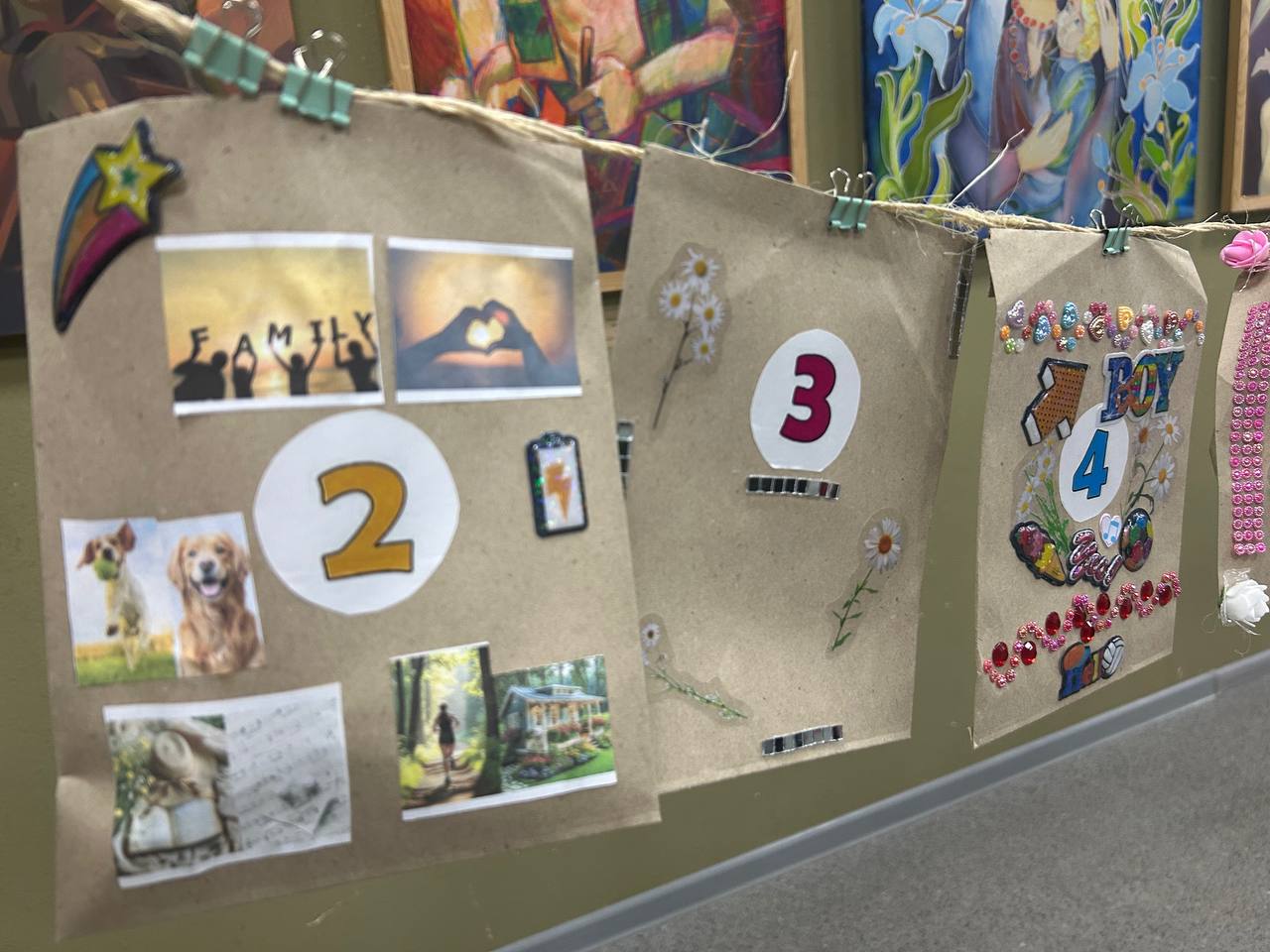
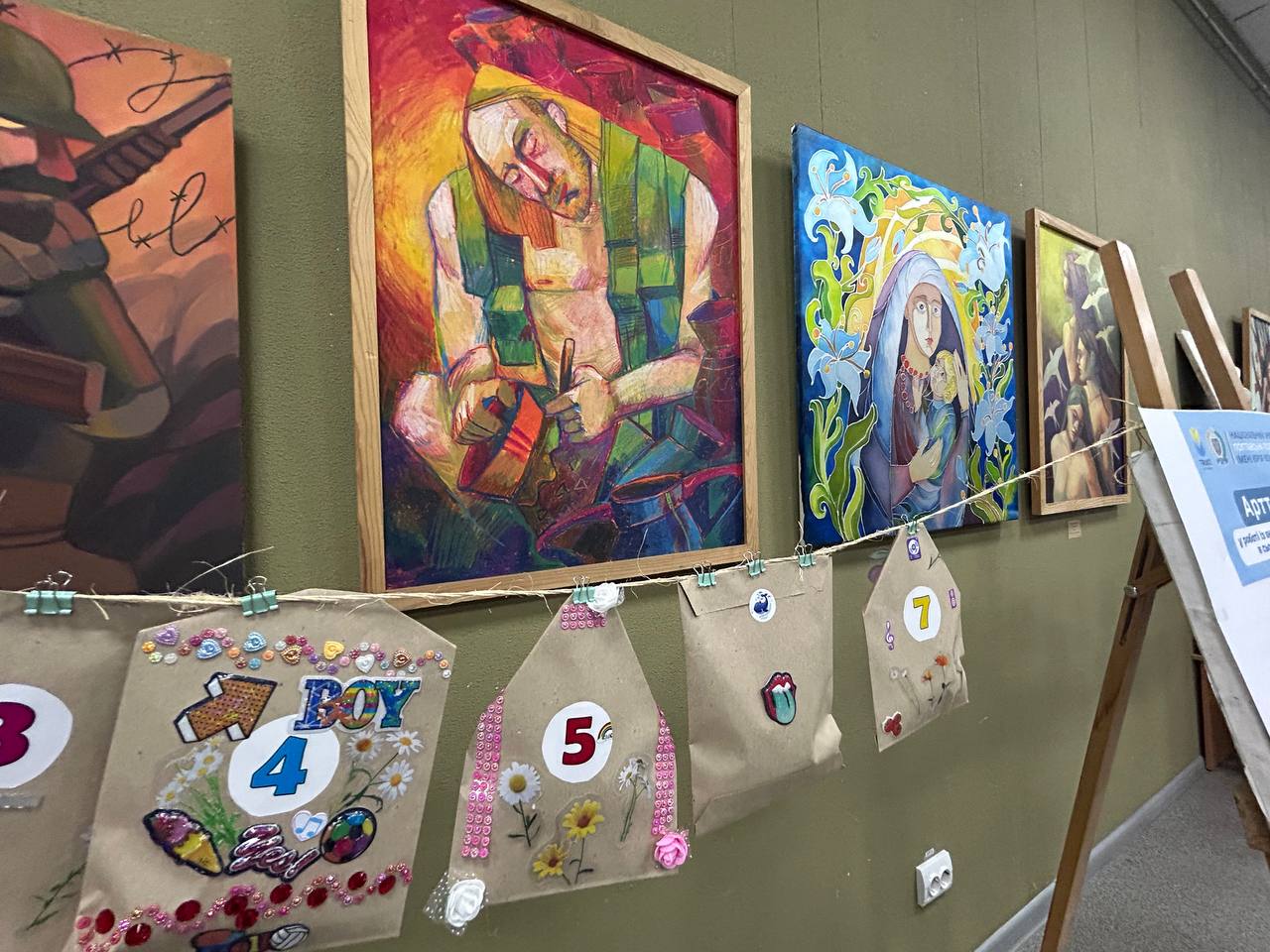
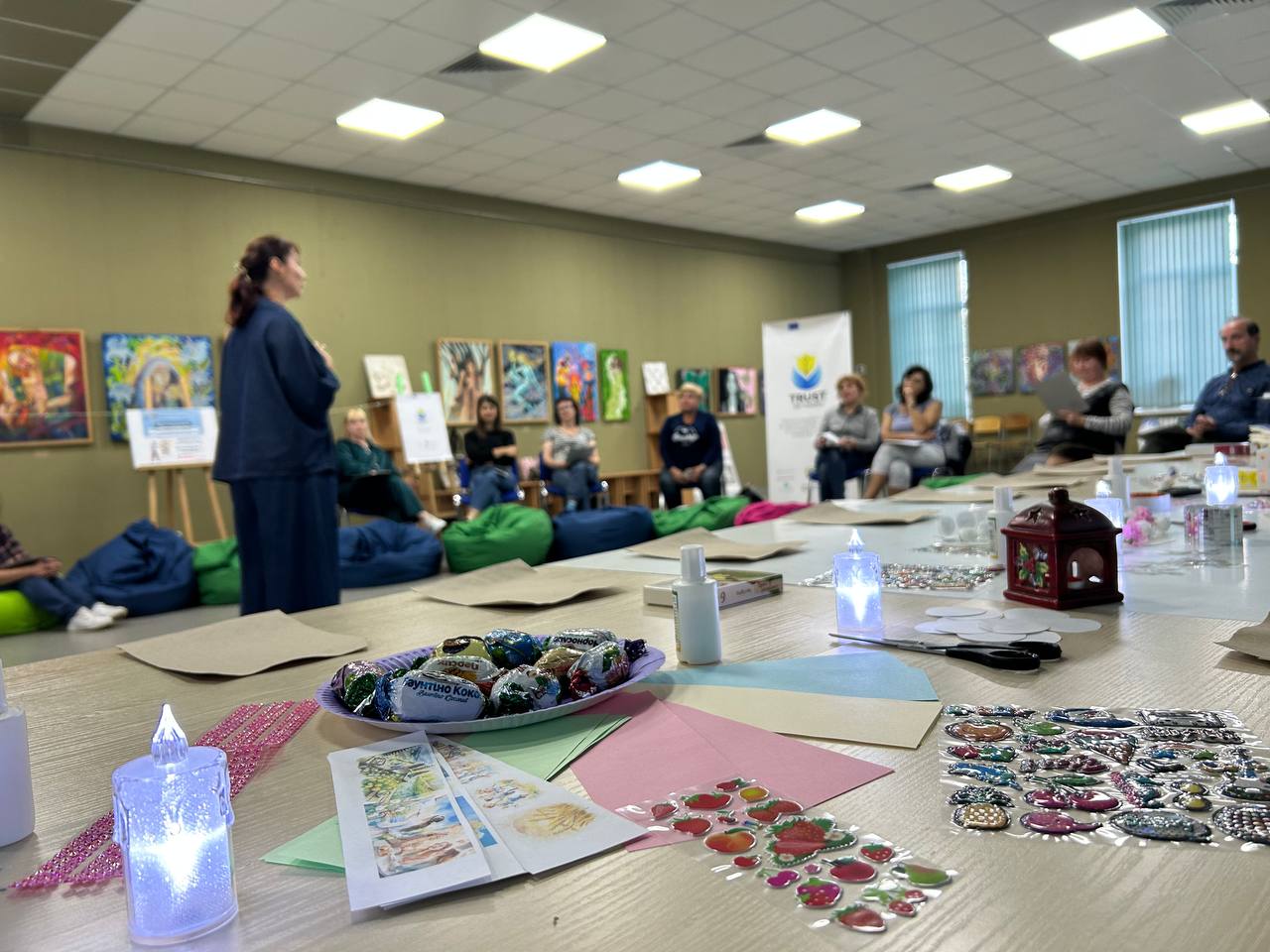
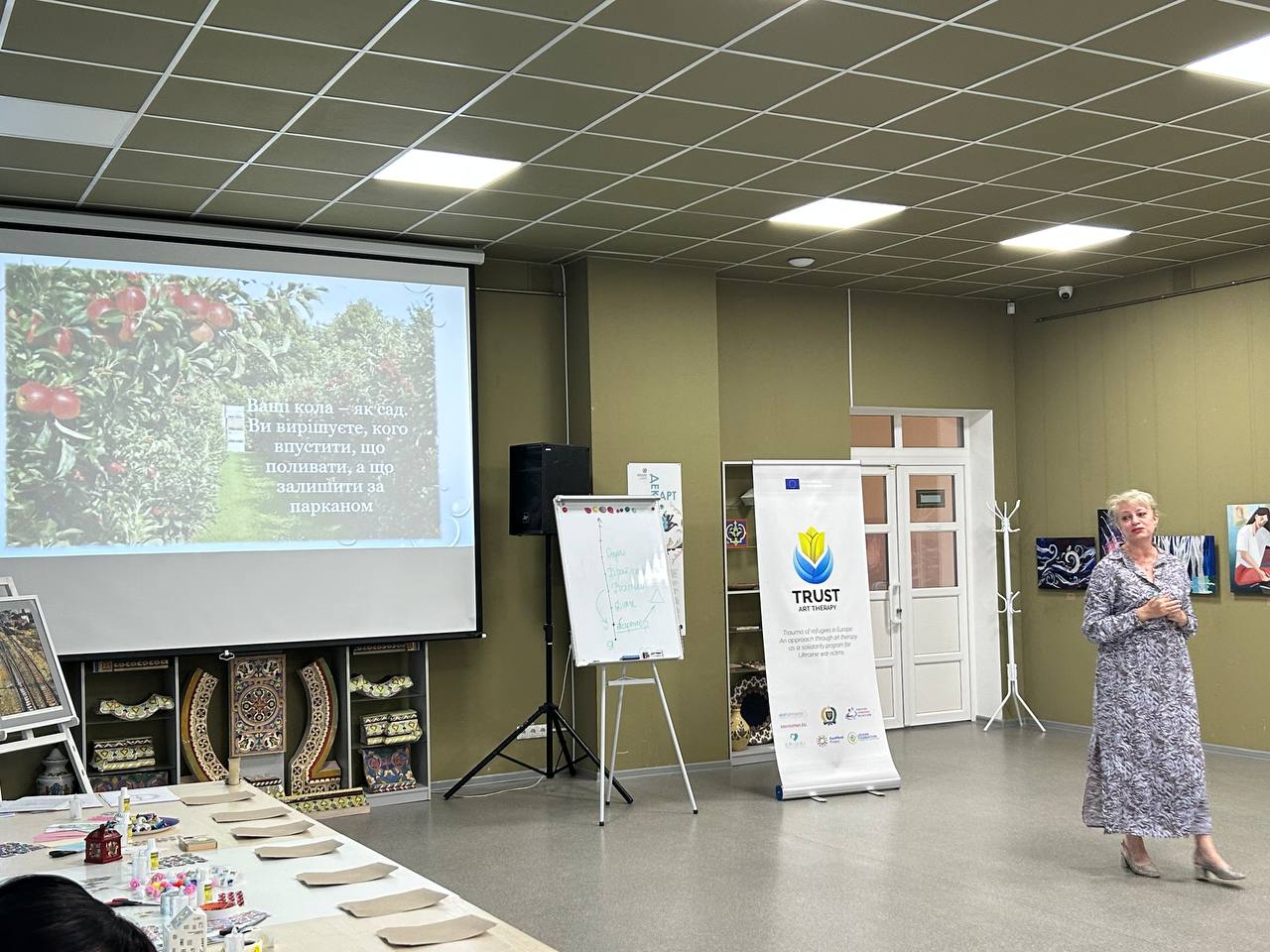
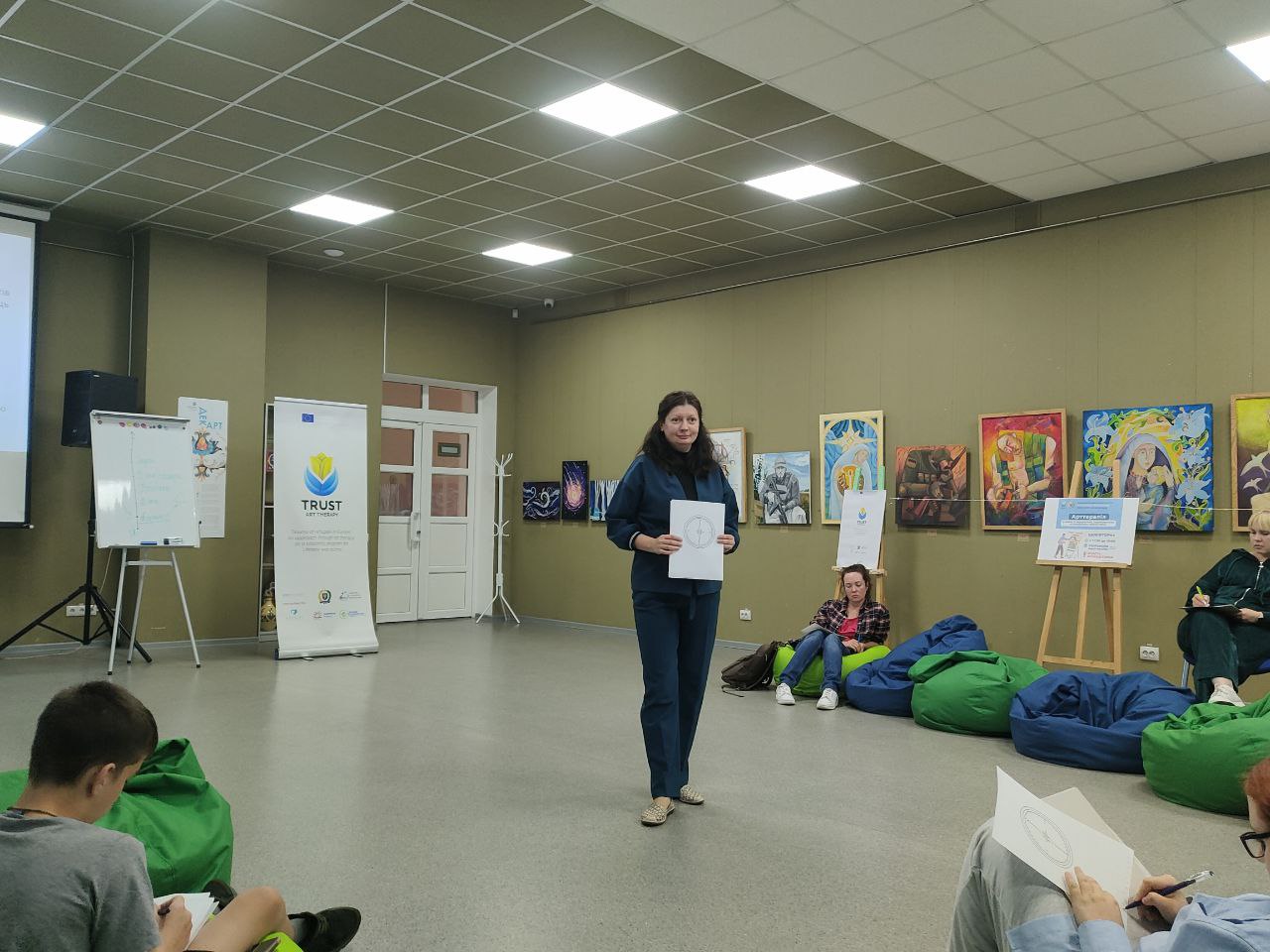
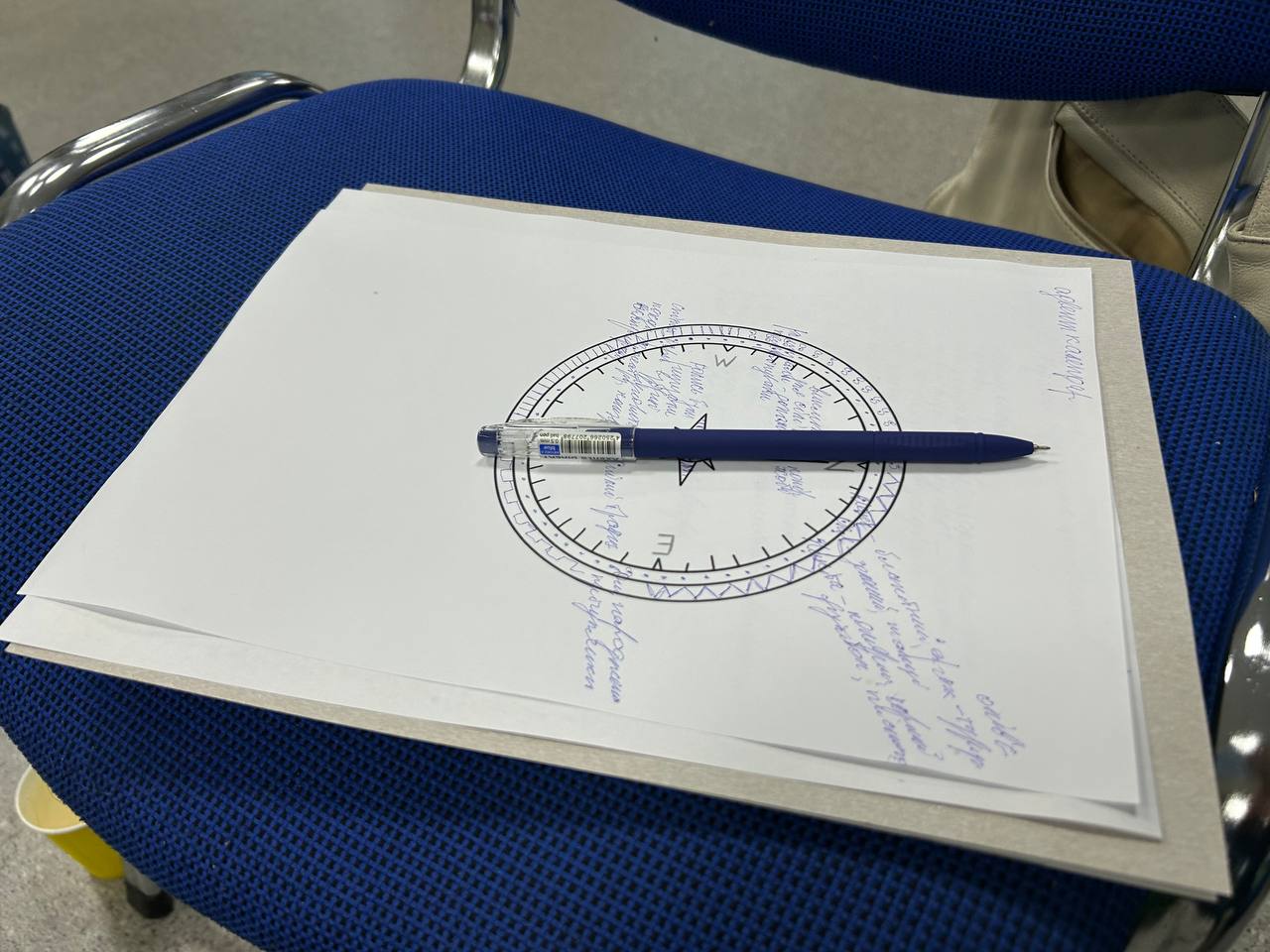
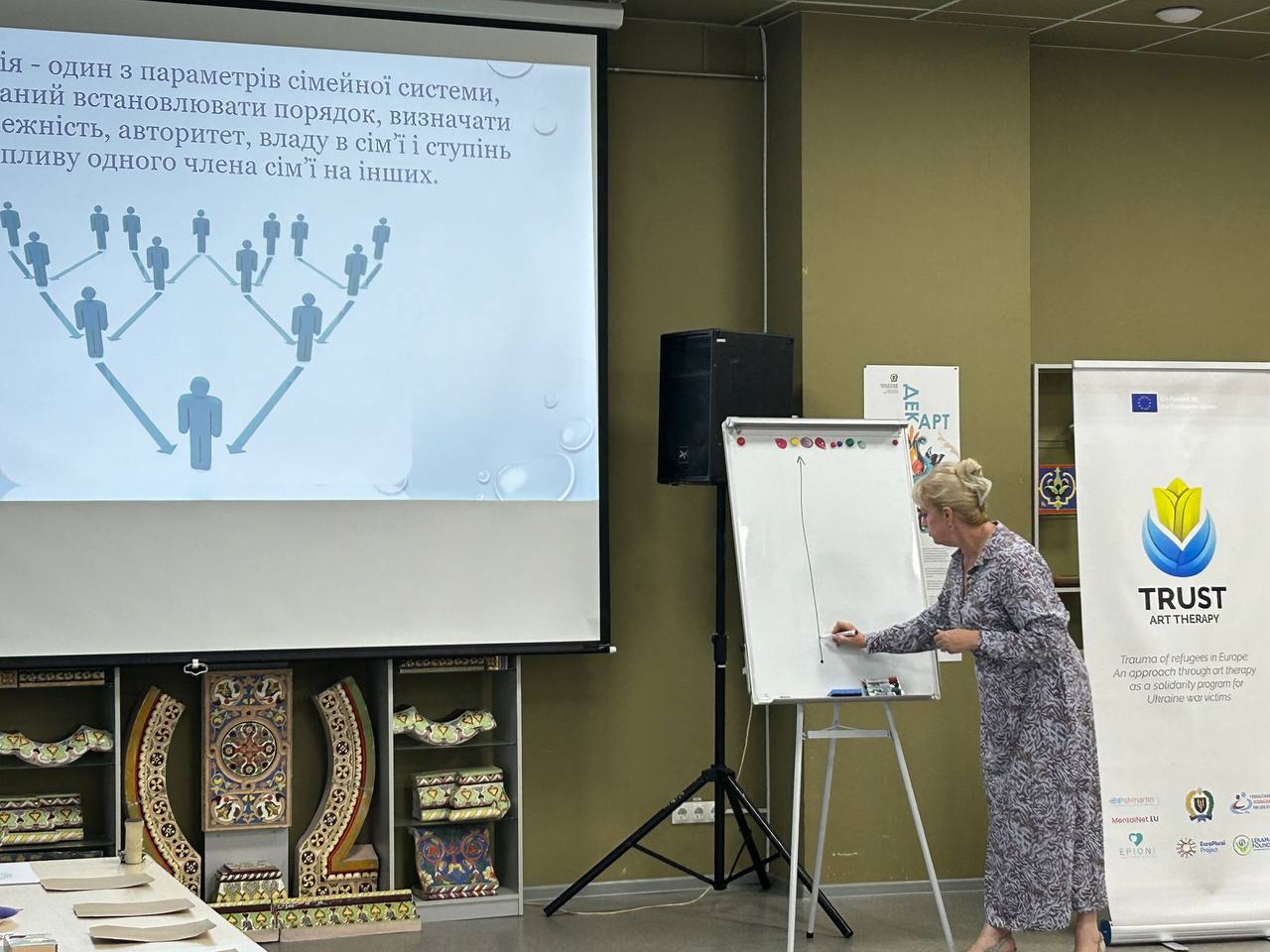
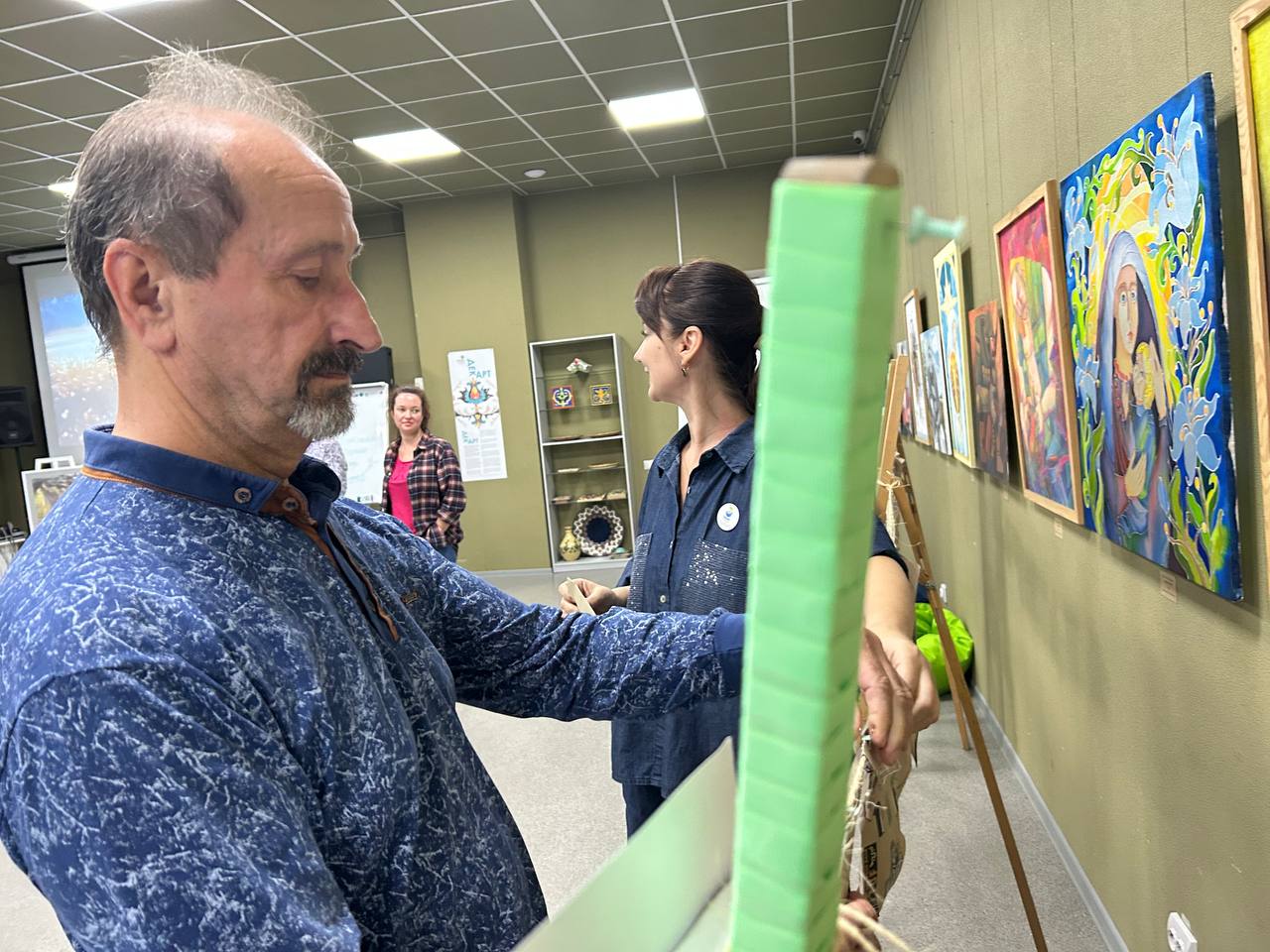
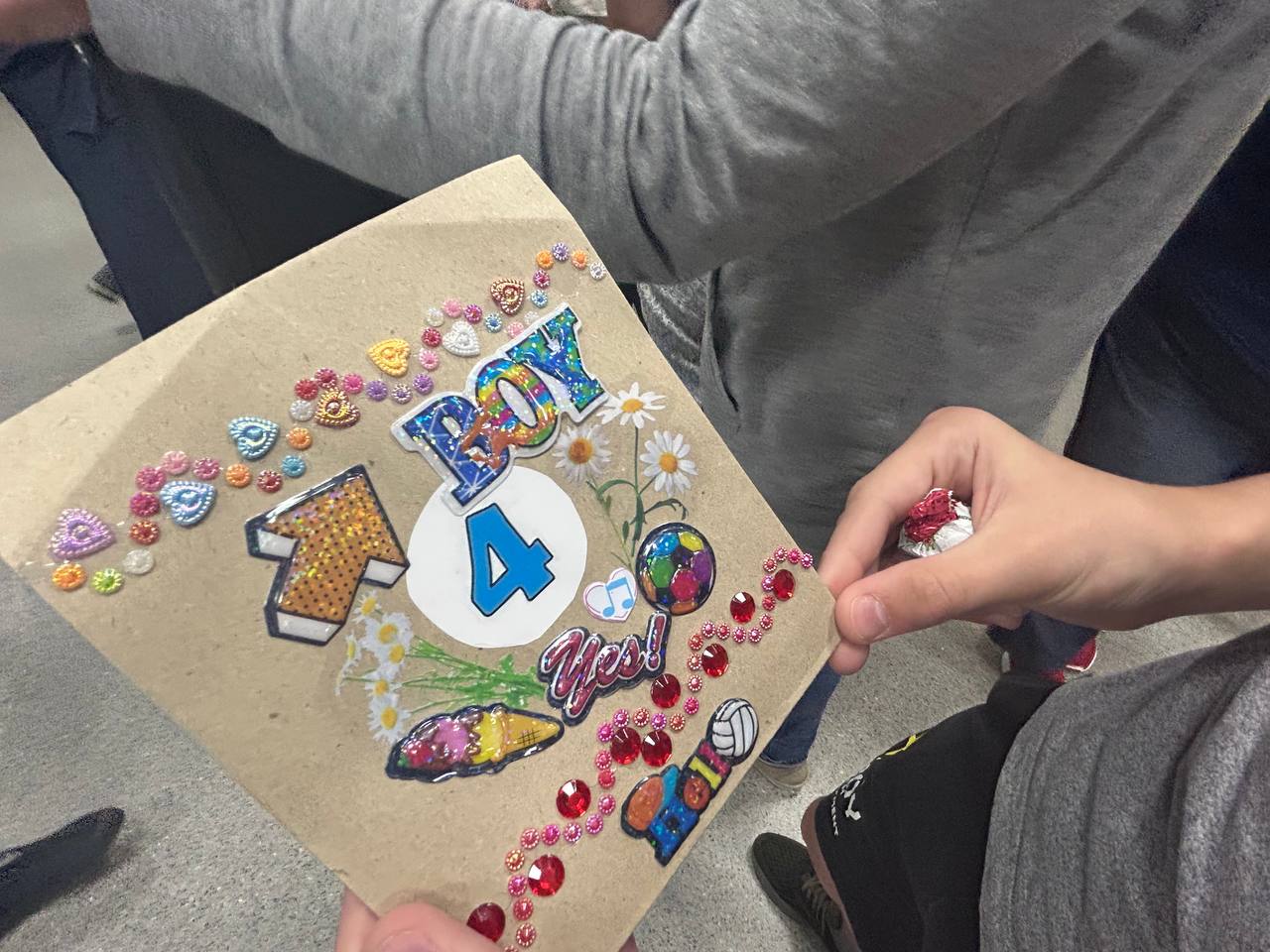
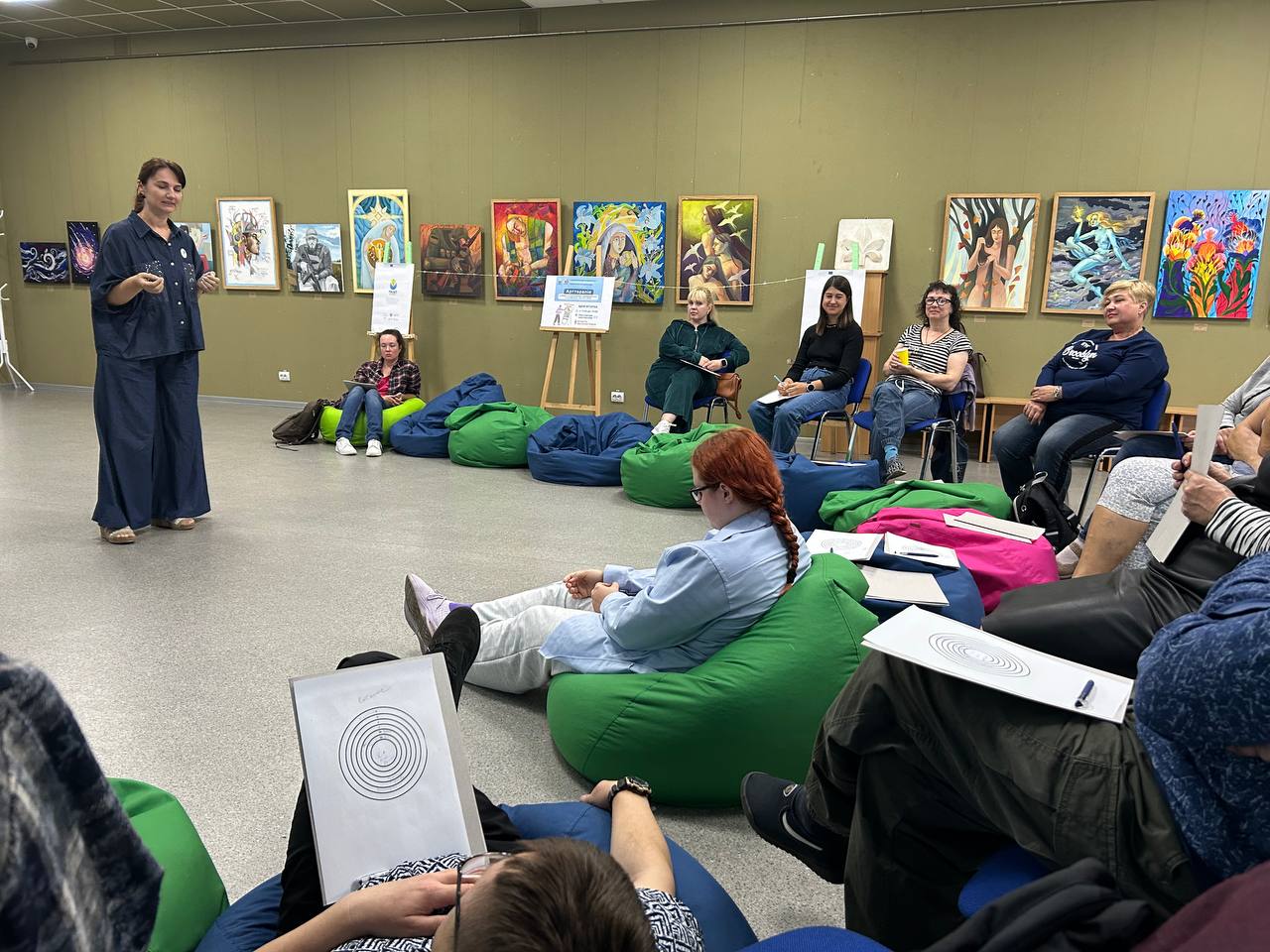
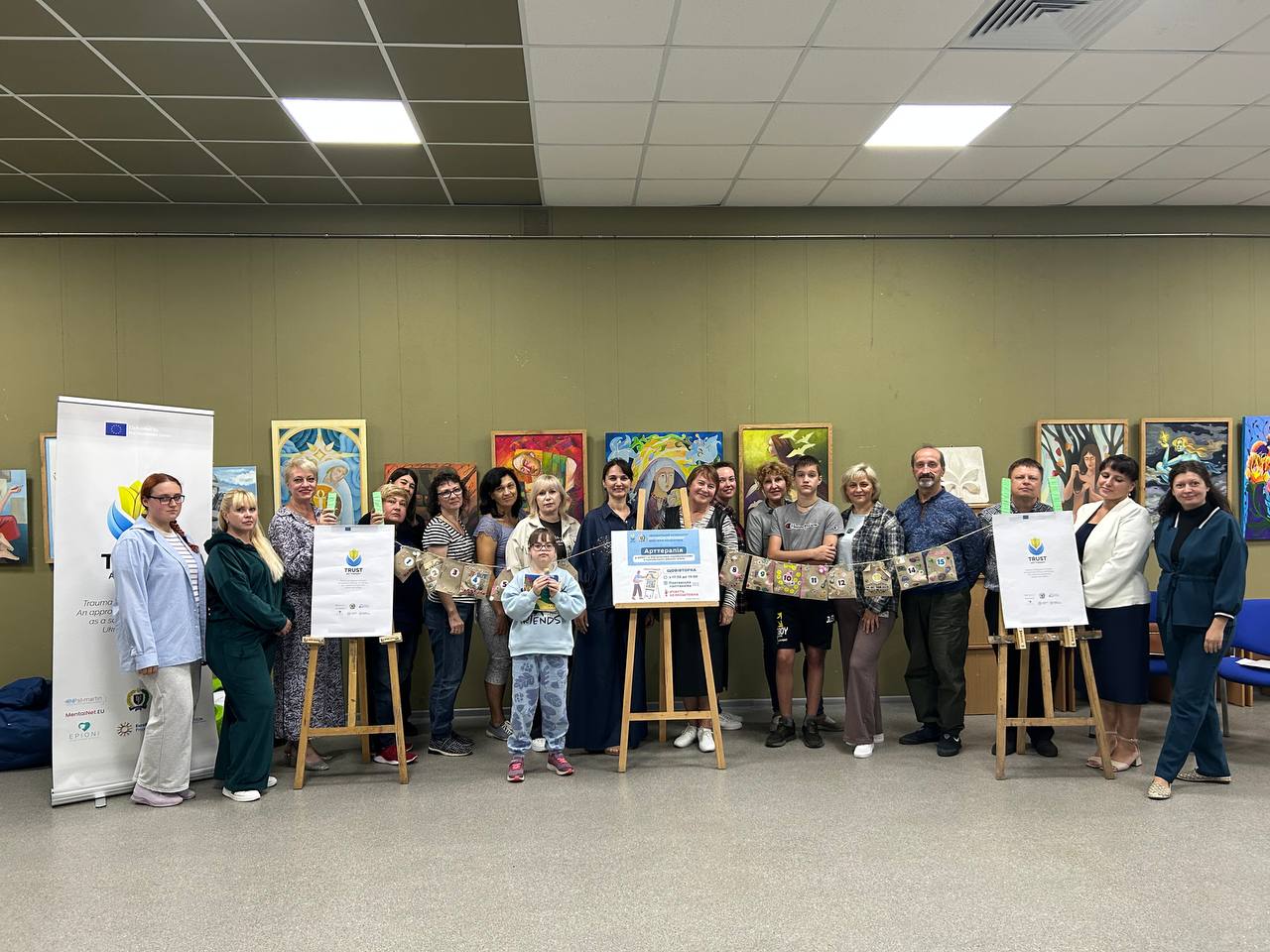
This meeting was designed to support internally displaced persons, the families of service members, and others affected by the war. It was a continuation of a series of events within the large-scale international Erasmus+ KA220-ADU project “TRUST” – Trauma of refugees in Europe: An approach through art therapy as a solidarity program for Ukraine war victims (Grant No. 2024-BE01-KA220-ADU-000257527).
The project title is decoded as follows:
TRUST
T – Trauma
R – Refugees
U – Ukraine
S – Solidarity
T – Therapy
The project is co-funded by the EU and led by the Centre Neuro Psychiatrique St-Martin from Belgium, in partnership with the National University “Yuri Kondratyuk Poltava Polytechnic” (Ukraine), Greek Carers Network EPIONI (Greece), Fondazione Don Luigi Di Liegro (Italy), Lekama Foundation (Luxembourg), EuroPlural Project (Portugal).
The moderators of this art therapy session were Lesia Klevaka, Ph.D. in Pedagogy, Acting Head of the Department of Psychology and Pedagogy, Associate Professor; Maryna Teslenko, Ph.D. in Pedagogy, Associate Professor of the Department of Psychology and Pedagogy; Viktoriia Shevchuk, Ph.D. in Psychology, Associate Professor of the Department of Psychology and Pedagogy; and Olena Kryvenko, Assistant Lecturer of the Department of Psychology and Pedagogy, Practical Psychologist of Poltava Polytechnic.
As a reminder, faculty members of Poltava Polytechnic are eligible to participate in academic mobility and internship programs. Students can study abroad through Erasmus+ credit academic mobility grant programs for a semester or a full academic year at leading universities in Austria, Greenland, Denmark, Estonia, Finland, France, Germany, Greece, Ireland, Italy, Latvia, Lithuania, Luxembourg, the Netherlands, Norway, Poland, Portugal, Romania, Slovakia, Spain, Sweden, and the Czech Republic.
For more detailed information on current internship, teaching, and academic mobility programs abroad, please get in touch with the International Relations Office (office 213-C, interoffice@nupp.edu.ua) or the coordinator of international activities at the National University “Yuri Kondratyuk Poltava Polytechnic” – Anna Pavelieva, Ph.D. in Philology, Associate Professor of the Department of Germanic Philology and Translation (email: kunsite.zi@gmail.com, phone: +38-(095)-91-08-192).
Media Centre of
National University “Yuri Kondratyuk Poltava Polytechnic”



